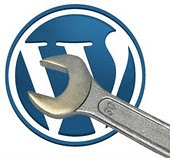SEO -- you may be getting tired of hearing it, but SEO is a vital facet of your Internet Business. In fact, I seen one local company advertising for individuals who were well versed in SEO -- salary plus a commission, if they were able to get their designated page in the top 10 of the big 3.
SEO helps people to find you, and hopefully, the ones that want to buy. I've written an article on some of the issues you should look at, to get to your targeted market.
SEO helps people to find you, and hopefully, the ones that want to buy. I've written an article on some of the issues you should look at, to get to your targeted market.
SEO and Your Targeted Market
SEO is a continuing process and one that should not be ignored. As you know, or will soon realize, is that the search engines are the main entry point at which your customers will find your website. But there are other issues you must be aware of to get the targeted customers that you want.
Keywords
You may have optimized your webpages and people are coming -- but not many. Why? It could be the keywords you are choosing.
Choosing the right keywords take time and effort, and it is an important factor to consider. When choosing keywords you should be asking yourself -
1.) What are the exact words people are using to find the product or service that you are offering. For example: Is it refurbished tools, cheap tools, free tools, red, ugly tools -- you get my meaning.
2.) Are my keywords too general, or overused. If the keywords are too general, you may receive visitors that are not buyers, just browsers. If the keywords are overused, you may be so far down in the search engine rankings that your site will never be seen.
3.) Do you have your keywords or keyword phases in your "Title Tag". Your keywords in the Title Page should be relevant to what your web copy relates too. If it doesn't, you've just wasted an important keyword tool that the Search Engines utilize.
4. Meta Keywords Tag -- Some people use the meta keywords Tag and others say that the search engines no longer use them. And still others, claim that it gives their competition an unfair advantage. I personally will continue to use them, because I don't believe all the search engines ignore this tag.
Finding the correct keywords is no easy task. However, did you think of asking the people around you what keywords or phases they would use to get to one of your web pages. You might be surprised -- it may not have been a keyword or phase that you even considered.
Popularity
Even though a keyword may be popular to the masses, you also must consider if it is targeting your specific market. Why? You may begin to get the traffic, but not the specific target market that will buy your products. And that is the bottom line, not so much the popularity of the word, as the quality of the traffic that the keyword brings.
And if the keyword is popular, you may find your web page competing with established websites -- which translates into poor positioning. Thus, you could consider other smaller niche words, and still get the ranking you seek.
Experiment
You will have to experiment with the keywords that you use on your webpage/website, to determine if the keywords you are using is giving you the sales you want.
I have found testing, evaluating and re-evaluating is the name of the game of SEO. If you keep that in mind, you will begin to see the results you want.
However, once you are in the top ten of the search engines, do not think your job is done. You must continue to monitor -- because the Internet is not a static environment -- and people can come online that can slide your web page or website down the line in the search engines.
Vickie J Scanlon -- Visit her site at: My Affiliate Place for tools, articles, ebooks, how to info on SEO, affiliate marketing, where to report scams, software, computers and more.
Read more...












